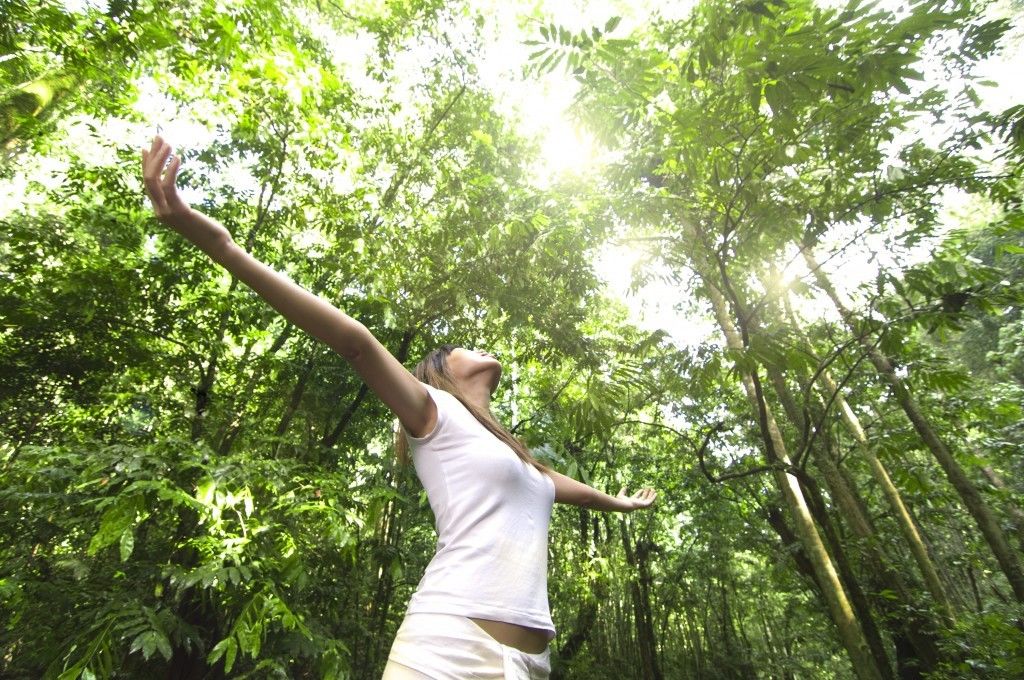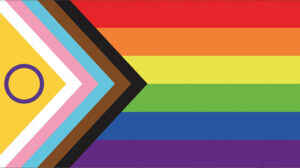Many have heard the declaration, “This pandemic is the introvert’s dream!” Or others have come across the post on social media relaying deep gratitude for the freedom COVID-19 has lended; allowing us to skip out on obligatory social gatherings with a full pardon. For those of us who are socializing safely, as per the CDC (United States Center for Disease Control) guidelines, our social circles have become smaller and perhaps hierarchically ranked with respect to who we spend our “distancing” time with. Some say these circumstances revealed which relationships are genuinely grounded in unconditional love, understanding and safety.
 Others are discovering a contrast they have never experienced as the silently sanctioned social pressures to show-up and be interesting, be fun, be engaging, be attractive and perhaps be the Pinterest guru have been inadvertently lifted. While there is a vast range on the continuum of the self-defined “new normal,” many are clinging to their pre-pandemic understanding of “healthy socialization.”
Others are discovering a contrast they have never experienced as the silently sanctioned social pressures to show-up and be interesting, be fun, be engaging, be attractive and perhaps be the Pinterest guru have been inadvertently lifted. While there is a vast range on the continuum of the self-defined “new normal,” many are clinging to their pre-pandemic understanding of “healthy socialization.”
In this way, imposing an old paradigm into a new system, can inhibit people from acclimating to new social norms and the benefits of self-acceptance that may come with it. In this new socially-distanced climate where we are not as distracted by demonstrating socio-economic superiority, we have the opportunity to connect with our true preferences and values. There is freedom in recognizing and embracing what is truly important.
New Social Norms, a New You
This is a time in history where we are being challenged to connect with unconditional self-acceptance; embrace our deepest and truest preferences, anchor ourselves in our strengths and trust in the power of focused thoughts and intentions in dictating how we experience this time. We have the choice to commit to self-empowerment; the understanding that we have the ability to mold our experience despite the circumstances. Perhaps we free ourselves by undoing our programming; questioning whether the way we were doing things before was conducive to a healthy state-of-being.
Assess the 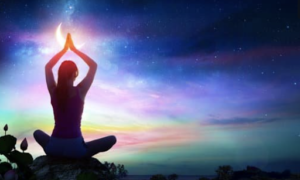 Impact: Spirituality and Health
Impact: Spirituality and Health
While Spirituality is interpreted in many ways, it can be defined as the recognition of being a part of a greater whole in connection with others. Research has shown that this awareness impacts our level of interpersonal functioning, psychological optimism, self-esteem and thus, overall health. Therefore, spirituality and health are connected. While human beings identify with individuality, we must also accept that we live our lives in relation to others. Whether we align with dogmatists, agnostics, left, right or anything in between, our thoughts, emotional states, and our actions are affected and influenced by the behavior and moods of others. As social beings, we cannot separate ourselves from those with whom we are connected with, social media platforms included.
We are ACTUALLY Connected
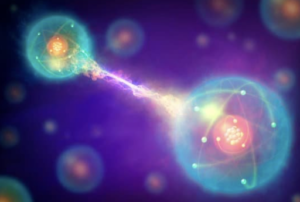 From a Neuroscience perspective, we are all Connected Brain to Brain, Cell to Cell. From a physics perspective, quantum entanglement which, stems from quantum mechanics posits, subatomic particles can influence and communicate with each other at huge distances, at 10,000 times the speed of light, with no observable way for the information to be communicated. In the realm of human relationships, it is then necessary to accept that we are electromagnetic beings, composed of subatomic particles and energy, capable of the same type of information transmission on a larger scale.
From a Neuroscience perspective, we are all Connected Brain to Brain, Cell to Cell. From a physics perspective, quantum entanglement which, stems from quantum mechanics posits, subatomic particles can influence and communicate with each other at huge distances, at 10,000 times the speed of light, with no observable way for the information to be communicated. In the realm of human relationships, it is then necessary to accept that we are electromagnetic beings, composed of subatomic particles and energy, capable of the same type of information transmission on a larger scale.
Our Thoughts, Intentions and Emotional States do Influence others
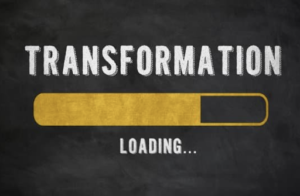 So, when relating to our peers, our children, our elders and especially ourselves, it is important to acknowledge that the last 6 months have commanded an exponential degree of behavioral and cognitive adjustment. We are continuously shifting as the Pandemic evolves and humans vary in their adaptability, comfort with change and socialization needs. Gentleness, unconditional self-acceptance and the acceptance of others is the pathway to self-empowerment and grounding ourselves emotionally during this time.
So, when relating to our peers, our children, our elders and especially ourselves, it is important to acknowledge that the last 6 months have commanded an exponential degree of behavioral and cognitive adjustment. We are continuously shifting as the Pandemic evolves and humans vary in their adaptability, comfort with change and socialization needs. Gentleness, unconditional self-acceptance and the acceptance of others is the pathway to self-empowerment and grounding ourselves emotionally during this time.
So why are the “introverts” being called out and what is introversion, anyway?
Biases against introversion in the American culture is no big secret. It is commonly mistaken for shyness or reclusiveness and extraversion mistaken for gregariousness and charisma. Carl Jung introduced the terms Introvert and Extrovert in 1921 as a way to distinguish between people who feel more connected to their inward thoughts and feelings and those who focus more on the external world. Throughout time, commonly-held beliefs and studies about introversion have been challenged by researchers.
Overall, most agree the introvert:
- Is often socially proficient but quickly tires of being “on” for long stretches of time – guarding their limited supply of social energy.
- Needs time alone to recharge and enjoys solitude
- Requires less stimulation than the extravert, deriving their energy internally rather than from others; preferring small gathers as opposed to large events.
- Keenly adept in their ability to focus and concentrate; having a preference of immersing themselves in one project at a time.
- While able to engage in small-talk, it quickly becomes taxing and they prefer deeper conversations.
- Are good listeners and thoughtful in their verbal expression
Extraverts VS. Introverts: is one or the other best equipped to cope? Is there really a Polarity?
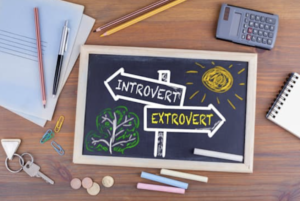
As with many things in life, extraversion and introversion are on a scale or within a range. Everyone spends some time extraverting and some time introverting. People have varying degrees of what is most natural, effortless, and comfortable for them. Per the individual, this also fluctuates in different environments and situations.
Perhaps a more adept question is whether our socialization choices are driven by our natural tendencies rooted in self-acceptance and personality or self-imposed behavior modifications in adherence to the social desirability of extraversion traits?
In light of the current state of the world, defining and evaluating our behavior based on what has been socially desirable in the past may no longer be adaptable, in contradiction of self-empowerment and primitive survival mechanisms; the ancient part of the evolved human brain that has ensured the survival of our species (modern Homo Sapien) for 200,000+ years.
Social events and close proximity to other humans in groups has been deemed an active danger at this time. Gatherings and scenarios involving a higher volume of social energy are on pause. March 2020 marks a moment in our history where abrupt (and for many, traumatic) adaptation was non-negotiable and essential for survival. Six months later, in America, our situation has evolved with new research findings, fluctuating smaller incidence of viral spread, reduced new cases and more effective treatment.
As a result, in the Northeast, we are now permitted to visit with small groups of people, enter indoor public spaces at reduced capacity so long as those visits are paired with a long list of 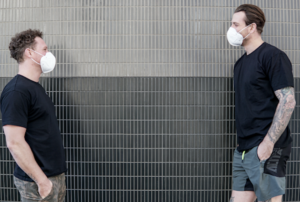 preventative measures and infection-mitigating behaviors.
preventative measures and infection-mitigating behaviors.
This still commands a level of focused responsibility, behavioral change and adaptation resulting in some psychological stress. Neurologically, we are creatures driven by habit and a preference for routine. Therefore, externally imposed changes are often met with varying levels of resistance and/or discomfort. An awareness of this and unconditional self-acceptance for this tendency may be the foundation for an organic adaptation to what it means to socialize in 2020 and beyond.
Social Appropriateness has changed in light of COVID-19
While many are awaiting the moment when, “things go back to normal,” it is important for us to accept that Social Appropriateness has changed in light of COVID-19. We are also being asked to adapt and connect with the need to embrace what is so human about the hardship of change, and the benefits of self-acceptance in our wide range of social preferences. It is no longer useful to determine what is socially healthy based on the social norms we have attached ourselves to pre-pandemic. In fact, it may be argued that continued attachment to how things used to be, as the world continues to evolve, may result in other mental health consequences.
It is therefore damaging to use old constructs of social desirability in evaluating ourselves or our loved ones. For example, a person’s reluctance to attend small gatherings after months of being forced to adapt to isolation due social distancing or quarantine is completely warranted. Communicating to a loved one that this is not normal or there is something wrong with them is exponentially more damaging than their hesitation to hang out with friends in that it activates shame.
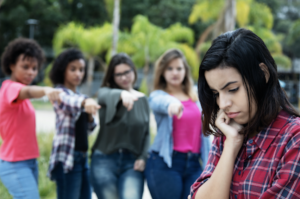
We feel shame when we violate the social norms we believe we should abide by. Whether it is activated through independent thought or an evaluation made by another, at such moments we feel exposed and humiliated. Shame is powerful in that it may prompt new beliefs such as, “there is something wrong with me” or “I am not normal” or “I have an anxiety disorder now.” Shame causes us to direct our focus inward and view our entire self negatively; affecting our sense of self-worth; the antithesis of unconditional self-acceptance. It is the uncomfortable sensation and anxiety we feel in the pit of our stomach when it seems we have no refuge from the judging observations of others.
Although shame is a universal emotion, how it affects mental health and behavior is not self-evident, meaning we are not always aware of how it affects us. Unresolved shame can lead to feelings of depression, anxiety, and low self-esteem. All of which are significantly more problematic than allowing ourselves the kindness and gentleness in an adjustment period as we navigate a new society with new social norms.
Focus on Adaptation
We are in a reintegration and growth period at this time. Everyone is doing this at a different pace, with respect to their comfort level and needs based on the extraversion/introversion scale. Our efforts in challenging our old ways of thinking, understanding variations in levels of adaptability among people, the benefits of self-acceptance and the impact on spirituality and health would be far more effective in alleviating anxiety and negative emotions than clinging to the idea that diverting from the way things used to be and transforming how we connect with others is “unhealthy.”
Contact us to find out more about how holistic therapy can help you.
Awakened Path Counseling proudly provides quality transpersonal and traditional psychotherapy, at their offices in Middlesex County, New Jersey, and online. Their experienced therapists specialize in serving teens, children, adults, couples, and families. The experienced clinicians at Awakened Path Counseling are passionate about their holistic approach to mental health, addressing your emotional, cognitive, physical, and spiritual needs.

